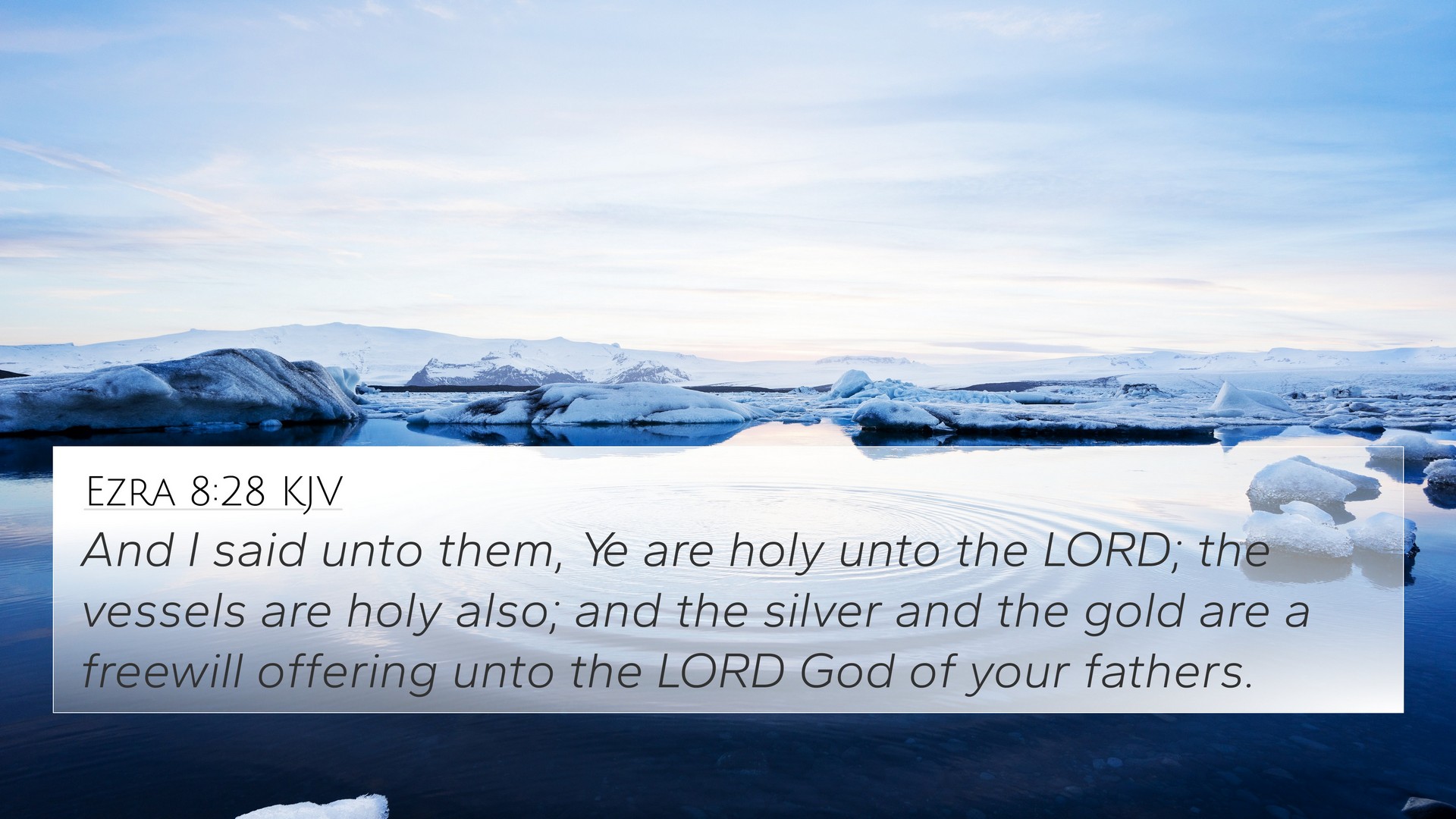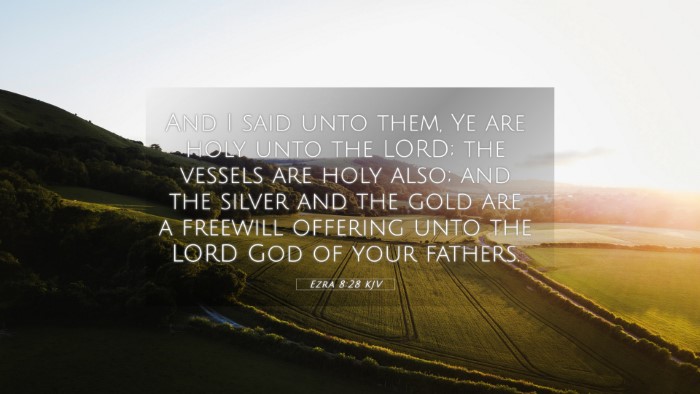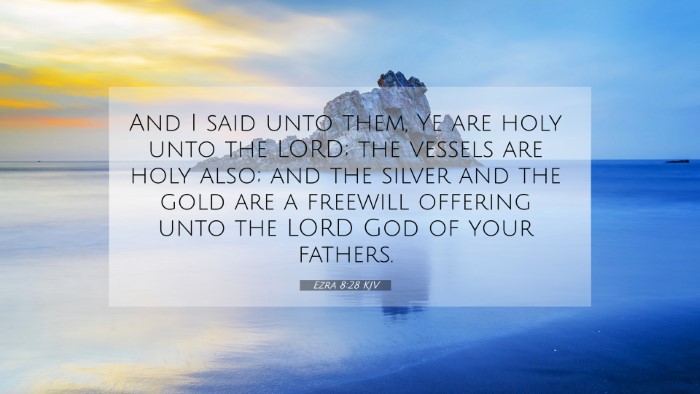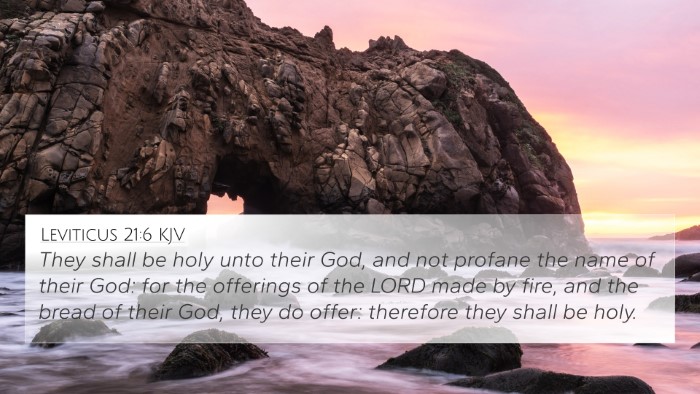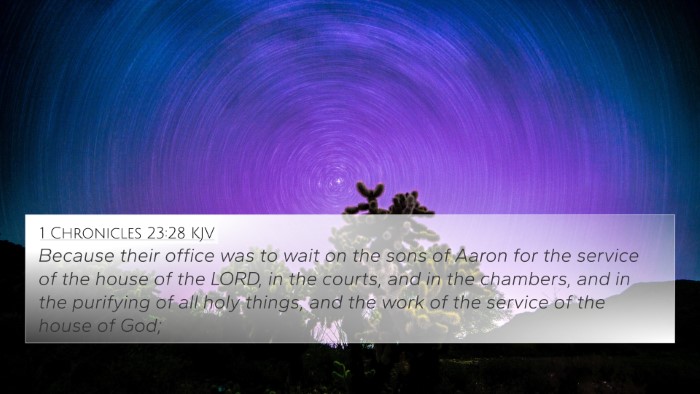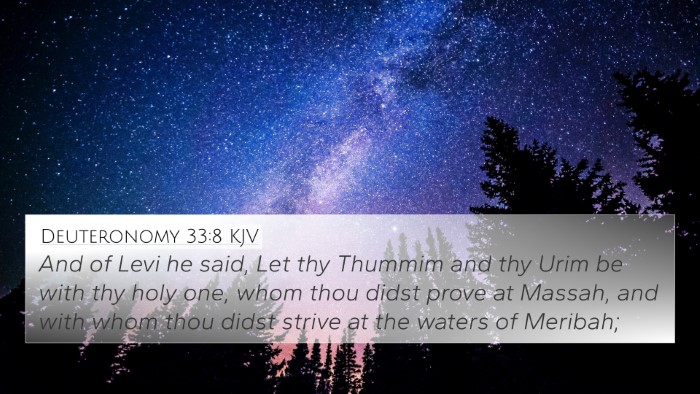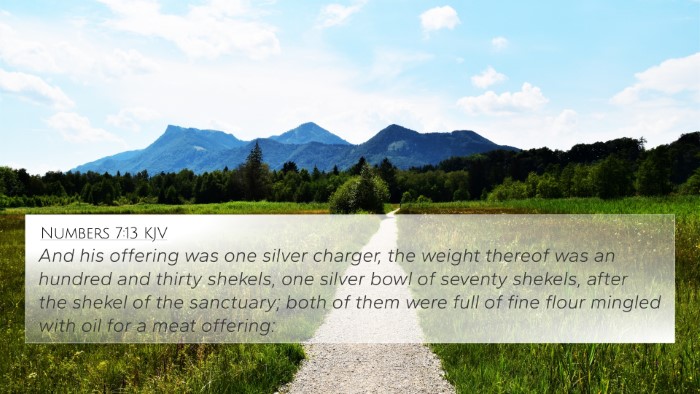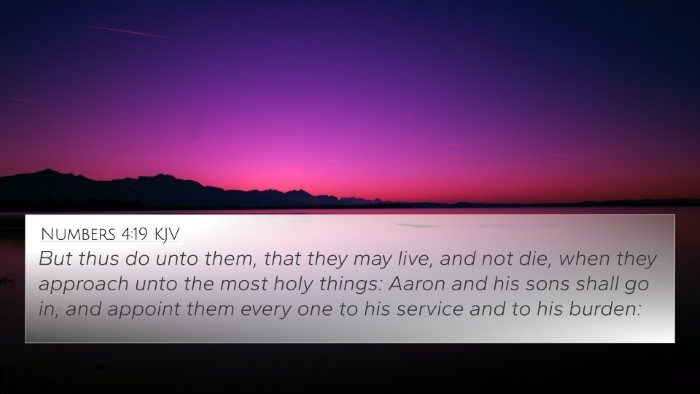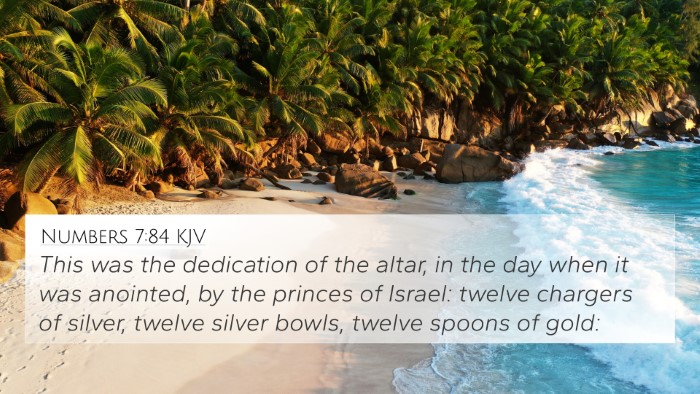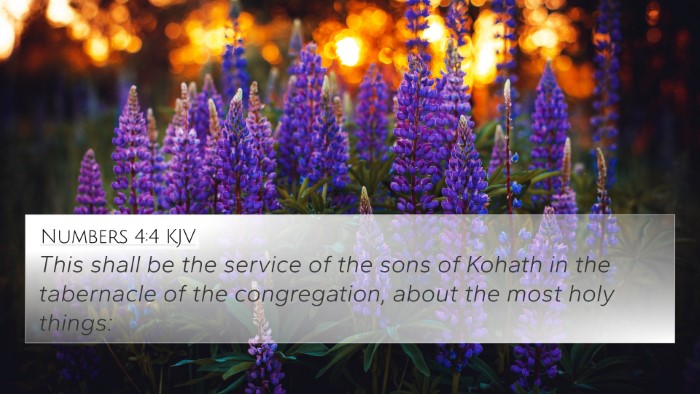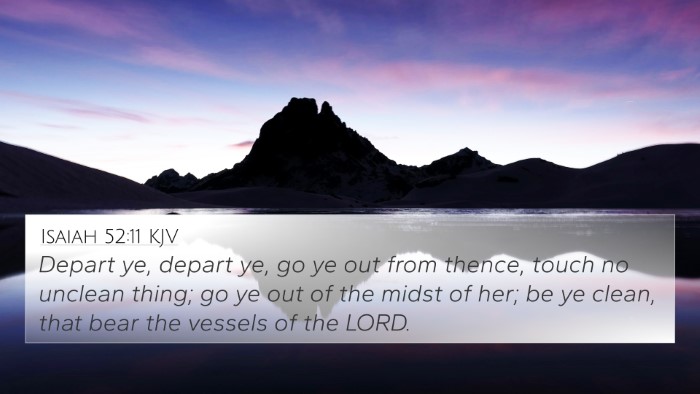Understanding Ezra 8:28
Ezra 8:28 states, "And I said unto them, Ye are holy unto the Lord; the vessels are holy also; and the silver and the gold are a freewill offering unto the Lord God of your fathers." This verse occurs within the context of Ezra's journey to Jerusalem, where he leads a group of exiled Jews back to their homeland after the Babylonian captivity. In this moment, Ezra acknowledges the importance of the vessels and offerings dedicated to God, emphasizing their sanctity and purpose.
Verse Meaning and Interpretation
In this passage, Ezra conveys several layers of meaning that are underscored by public domain commentaries:
- Holiness of the People: Matthew Henry emphasizes that the people returning with Ezra are considered holy because they have set themselves apart for God's service. Their journey is not just a physical relocation but a spiritual commitment.
- Holiness of the Vessels: Albert Barnes points out that the vessels mentioned are also consecrated for sacred use, highlighting that worship requires not only a holy people but also holy instruments.
- Freewill Offering: Adam Clarke elaborates on the nature of the offerings as voluntary, indicating that true devotion cannot be compelled but is rather a reflection of one's heart towards God.
- Connection to Past Covenant: The reference to "the Lord God of your fathers" resonates with the historical covenant made with the ancestors of the Israelites, advising that they act faithfully as their forebears did.
Bible Verse Cross-References
This verse is interwoven with various themes and connections throughout scripture. The following cross-references highlight these relationships:
- Exodus 19:6: "And ye shall be unto me a kingdom of priests, and an holy nation." This reinforces the theme of holiness among God’s people.
- 1 Peter 2:9: "But ye are a chosen generation, a royal priesthood, an holy nation." Reflects the New Testament's affirmation of believers' sanctity.
- Leviticus 27:28-29: Discusses the consecration of dedicated items and their importance to God.
- 2 Corinthians 9:7: "Every man according as he purposeth in his heart, so let him give; not grudgingly, or of necessity: for God loveth a cheerful giver." Ties to the idea of freewill offerings.
- Nehemiah 10:38: The Levites are to bring the firstfruits of their harvests, similar to the dedication of the vessels.
- Romans 12:1: "I beseech you therefore, brethren, by the mercies of God, that ye present your bodies a living sacrifice, holy, acceptable unto God." This speaks to the call for personal holiness in service to God.
- Psalms 119:108: "Accept, I beseech thee, the freewill offerings of my mouth, O Lord." Resonates with the idea of commitment and voluntary offerings.
- Hebrews 13:15: Encouragement to offer a sacrifice of praise, akin to the offerings of silver and gold in Ezra.
Thematic Connections and Cross-Referencing
Linking these scriptures reveals a rich tapestry of themes such as:
- Holiness and Dedication: Throughout the Old and New Testaments, the call to be set apart for God is a consistent message that resonates across different contexts.
- Offerings and Sacrificial Giving: The notion of giving freely to God serves as a connecting thread, underscoring that God desires sincere offerings.
- Historical Continuity: The references to the fathers keeps the narrative of God's dealings with His people alive, showing that His promises and expectations persist through generations.
Bible Study Applications
Studying Ezra 8:28 through these cross-references offers valuable insights:
- Cultivating Holiness: Reflect on how one can maintain a sense of holiness in daily life.
- Importance of Offerings: Consider what it means to give offerings of time, talent, and resources voluntarily.
- Exploring Historical Context: Delve deeper into how understanding Jewish history enriches the meaning of the text.
- Application of Giving: Develop practical ways to implement the principles of joyful and freewill giving into one’s life.
Tools for Bible Cross-Referencing
In studying the Bible, utilizing tools for cross-referencing can deepen understanding. Some resources include:
- Bible Concordance: A lexicon that provides references to where words appear in the Bible.
- Bible Cross-Reference Guide: Resources that delineate connections between verses thematically.
- Cross-reference Bible Study: Techniques for studying the Bible through linked verses for thematic exploration.
- Bible Chain References: Follow chains of references that lead to deeper insights.
Conclusion
Ezra 8:28 serves as a pivotal reminder of the sanctity and purpose of both the people and what they offer to God. Understanding the connections between this verse and others enriches the reader’s grasp of themes such as holiness, sacrificial giving, and spiritual heritage. By employing various cross-referencing methods, interpreters can unlock a more profound appreciation for Scriptural messages that transcend the ages.
